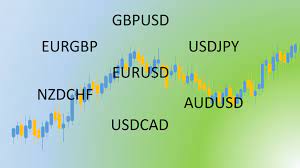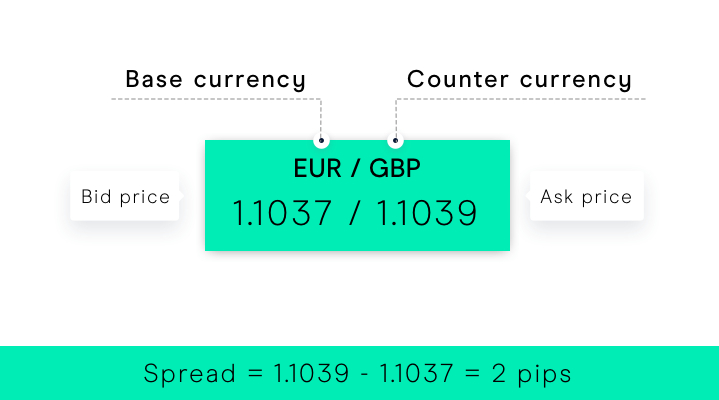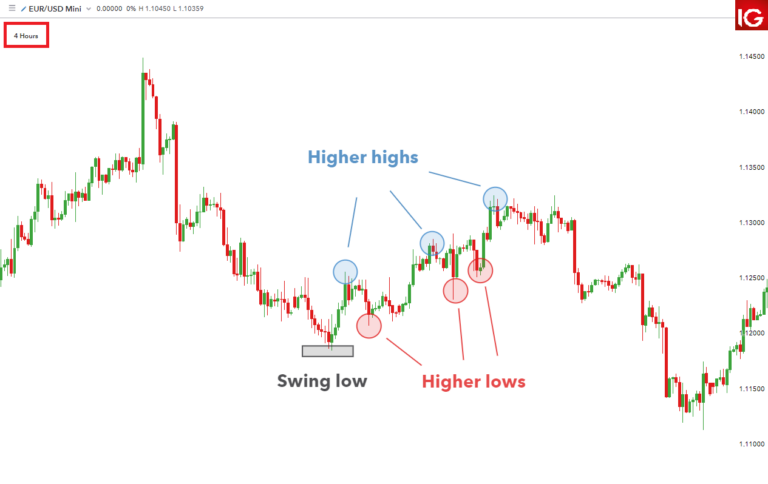Introduction to Forex vs Stocks
In the world of investment, two prominent avenues often vie for the attention of investors: foreign exchange (forex) and stocks. Both offer unique opportunities and challenges, catering to diverse investment strategies and risk appetites. Understanding the differences and correlations between forex and stocks is crucial for making informed investment decisions.
This article delves into the distinctions between these two markets, explores their correlation, evaluates their profitability, and helps readers determine which one might be best suited for their investment goals.
Difference between Forex and Stocks
Forex, short for foreign exchange, is the global marketplace for trading currencies. It operates 24 hours a day, five days a week, allowing investors to buy and sell currencies from around the world. The forex market is highly liquid, with trillions of dollars exchanged daily. Investors can engage in forex trading through various financial instruments like spot transactions, futures contracts, options, and exchange-traded funds (ETFs). Forex vs Stocks
On the other hand, the stock market represents ownership in publicly-traded companies. Investors buy and sell shares of these companies, aiming to profit from changes in stock prices. Stock markets operate during specific trading hours, typically aligned with the business hours of the respective countries’ exchanges. Stocks offer investors the opportunity to participate in the growth and success of individual companies across different sectors and industries.
One key difference between forex and stocks lies in their underlying assets. In forex trading, investors trade currency pairs, such as EUR/USD or GBP/JPY, while in the stock market, investors trade shares of individual companies. Additionally, the factors influencing forex and stock prices differ significantly. Forex prices are influenced by geopolitical events, economic indicators, central bank policies, and market sentiment, whereas stock prices are driven by company performance, industry trends, macroeconomic factors, and investor sentiment.
Forex Market: Forex, or foreign exchange, is the global marketplace where currencies are traded. It operates 24 hours a day, five days a week, spanning different time zones and allowing for continuous trading activities. The forex market is characterized by its high liquidity, with trillions of dollars exchanged daily, making it the largest and most liquid financial market in the world. This liquidity ensures that investors can easily enter and exit positions without significant price fluctuations.
Investors in the forex market engage in trading currency pairs, where one currency is exchanged for another. These currency pairs are quoted in terms of one currency relative to another, such as EUR/USD or GBP/JPY. Forex trading involves speculating on the fluctuations in exchange rates between currency pairs, aiming to profit from the price movements. Investors can participate in forex trading through various financial instruments, including spot transactions, futures contracts, options, and exchange-traded funds (ETFs).
The factors influencing forex prices are diverse and include geopolitical events, economic indicators, central bank policies, and market sentiment. Changes in interest rates, inflation rates, economic growth, and political stability can all impact currency values. Traders in the forex market closely monitor these factors and use various analysis techniques to anticipate currency movements and make informed trading decisions.
Stock Market: In contrast, the stock market represents ownership in publicly-traded companies. Investors buy and sell shares of these companies, which represent ownership stakes in the underlying businesses. The stock market operates during specific trading hours, typically aligned with the business hours of the respective countries’ exchanges, providing a window for trading activities.
Stocks offer investors the opportunity to participate in the growth and success of individual companies across different sectors and industries. Investing in stocks can yield returns through capital appreciation, dividends, and ownership rights in the companies. Investors analyze company performance, industry trends, macroeconomic factors, and investor sentiment to make informed decisions about buying and selling stocks.
One key difference between forex and stocks lies in their underlying assets. In forex trading, investors trade currency pairs, whereas in the stock market, investors trade shares of individual companies. Additionally, the factors influencing forex and stock prices differ significantly. While forex prices are primarily driven by macroeconomic factors and currency-specific events, stock prices are influenced by company performance, industry dynamics, and broader market trends.
In summary, the forex market provides opportunities for trading currencies based on global economic factors and geopolitical events, while the stock market allows investors to participate in the growth and profitability of individual companies. Understanding the differences between these markets is essential for investors to develop diversified investment portfolios and navigate the complexities of the financial markets effectively.
Correlation between Forex and Stocks
While forex and stock markets are distinct entities, they are not entirely independent of each other. There exists a correlation between these markets, albeit sometimes complex and ever-changing. Understanding this correlation can provide valuable insights for diversifying investment portfolios and managing risk.
In times of economic stability and optimism, investors may observe a positive correlation between stock prices and the value of certain currencies. For instance, a strengthening economy often leads to rising stock prices as companies report improved earnings and growth prospects. Simultaneously, the currency of that country may appreciate as foreign investors seek to invest in assets denominated in that currency, driving up its value in the forex market.
Conversely, during periods of economic uncertainty or market volatility, correlations between forex and stocks may become negative. Investors tend to seek safe-haven assets during such times, leading to a flight to quality. In this scenario, while stock prices may decline due to market pessimism, certain currencies, such as the US dollar or the Japanese yen, may appreciate as investors flock to them for safety, causing their values to rise in the forex market.
However, it’s essential to note that correlations between forex and stocks can vary depending on numerous factors, including geopolitical events, interest rate movements, and global economic trends. Therefore, investors should conduct thorough analysis and exercise caution when relying on correlations to inform their trading decisions.
The correlation between the forex and stock markets is a dynamic phenomenon that evolves in response to various economic, geopolitical, and market-specific factors. Understanding this correlation is crucial for investors seeking to diversify their portfolios and manage risk effectively. Let’s delve deeper into how the relationship between forex and stocks unfolds under different market conditions:
Positive Correlation:
During periods of economic stability and optimism, investors often observe a positive correlation between stock prices and the value of certain currencies. When the economy is thriving, companies tend to report improved earnings and growth prospects, leading to rising stock prices. Simultaneously, foreign investors may seek to invest in assets denominated in the currency of that country, driving up its value in the forex market.
For example, suppose the United States experiences robust economic growth, leading to higher corporate profits and increased investor confidence in the stock market. In such a scenario, the value of the US dollar may appreciate as foreign investors pour capital into US-based assets, including stocks. This positive correlation between US stock prices and the value of the US dollar reflects the overall strength and optimism in the economy.
Similarly, positive correlations can be observed in other regions and currencies, depending on their respective economic conditions and market sentiment. Investors can leverage this correlation to diversify their portfolios by simultaneously investing in stocks and currencies that exhibit a positive relationship, thereby spreading risk across different asset classes.
Negative Correlation:
Conversely, during periods of economic uncertainty or market volatility, correlations between forex and stocks may turn negative. When investors become risk-averse and seek safe-haven assets, they often flock to currencies perceived as stable and reliable stores of value, such as the US dollar, Japanese yen, or Swiss franc.
For instance, in times of geopolitical tensions or financial market turmoil, stock prices may decline as investors sell off riskier assets and move towards safer alternatives. Meanwhile, currencies like the US dollar or the Japanese yen may appreciate as investors seek refuge from market uncertainty, driving up their values in the forex market.
This negative correlation between stock prices and the value of certain currencies reflects investors’ flight to quality and their preference for safe-haven assets during turbulent times. By understanding and anticipating these shifts in correlation, investors can adjust their portfolios accordingly to mitigate downside risk and preserve capital during market downturns.
Complex and Ever-Changing Dynamics:
It’s essential to recognize that the correlation between forex and stocks is not static but rather dynamic and subject to change based on evolving market conditions and external factors. Economic indicators, central bank policies, geopolitical events, and global macroeconomic trends can all influence the correlation between these markets.
Moreover, correlations may vary across different currency pairs and stock indices, adding further complexity to the relationship. For example, while certain currencies may exhibit a strong correlation with stock prices in one region, they may demonstrate a weaker or inverse correlation with stocks in another region.
Additionally, correlations between forex and stocks may vary over different time horizons, ranging from short-term fluctuations to longer-term trends. Investors should conduct thorough analysis and stay abreast of market developments to effectively navigate these complex dynamics and make informed investment decisions.
In conclusion, the correlation between forex and stocks is a multifaceted phenomenon that offers valuable insights for investors seeking to diversify their portfolios and manage risk. By understanding the dynamics of this correlation and its implications under different market conditions, investors can enhance their ability to navigate the financial markets effectively and achieve their investment objectives.
Which One is More Profitable?
Determining which market is more profitable, forex or stocks, is a subjective matter that depends on various factors, including individual trading strategies, risk tolerance, and market conditions. Both forex and stocks offer opportunities for profit, but each comes with its own set of advantages and challenges.
Forex trading is known for its high liquidity, allowing traders to enter and exit positions with ease. Moreover, the forex market operates 24/5, providing flexibility for traders to participate in trading activities at their convenience. The ability to leverage positions in forex trading enables traders to amplify potential profits, albeit with increased risk. However, the forex market can also be highly volatile, leading to substantial losses if proper risk management strategies are not employed.
On the other hand, stock trading offers investors the opportunity to profit from the growth and success of individual companies. Investing in stocks can provide dividends, capital appreciation, and ownership rights in companies. Moreover, long-term investing in fundamentally strong companies can yield significant returns over time. However, stock trading involves company-specific risks, market volatility, and regulatory factors that can impact stock prices.
Ultimately, whether forex or stocks are more profitable depends on an individual’s trading expertise, risk management skills, and market conditions. Some traders may find success in forex trading due to its liquidity and leverage opportunities, while others may prefer the stability and growth potential offered by investing in stocks.
Which One is Best Suited for You?
Choosing between forex and stocks requires careful consideration of your investment objectives, risk tolerance, time horizon, and trading preferences. Here are some factors to help you determine which market may be best suited for you:
- Risk Tolerance: Forex trading often involves higher volatility and leverage, making it suitable for investors with a higher risk tolerance and experience in managing risk. Conversely, stock investing may be more appropriate for conservative investors seeking stable returns over the long term.
- Time Horizon: Consider your investment time horizon. Forex trading can be more conducive to short-term trading strategies due to its high liquidity and volatility, while stock investing may align better with long-term wealth accumulation goals.
- Trading Style: Assess your preferred trading style. If you enjoy active trading and are comfortable with rapid price movements, forex trading may be a good fit. Conversely, if you prefer a buy-and-hold approach and are interested in company fundamentals, stock investing may be more suitable.
- Knowledge and Expertise: Evaluate your knowledge and expertise in financial markets. Both forex and stocks require a certain level of understanding and analysis. Choose the market where you feel confident in your ability to make informed trading decisions.
The correlation between the forex and stock markets is indeed a multifaceted phenomenon that is influenced by a myriad of economic, geopolitical, and market-specific factors. Delving deeper into the dynamics of this correlation can provide investors with valuable insights for optimizing portfolio diversification and risk management strategies. Let’s further expand on the positive and negative correlations between forex and stocks, as well as the complex and ever-changing dynamics that shape their relationship:
Positive Correlation:
During periods of economic stability and optimism, a positive correlation between stock prices and certain currencies tends to emerge. This correlation is fueled by increased investor confidence in the economy, driven by factors such as robust corporate earnings and favorable economic indicators. As companies thrive, their stock prices rise, attracting foreign investors who seek to capitalize on the growth opportunities in the respective country.
For instance, when the United States experiences strong economic growth, bolstered by increased consumer spending, business investments, and job creation, US-based companies typically report higher profits. Consequently, stock prices in the US market surge, reflecting investor optimism and confidence in the country’s economic prospects. Concurrently, the value of the US dollar may appreciate as foreign investors pour capital into US-based assets, including stocks, thereby reinforcing the positive correlation between US stock prices and the value of the US dollar.
Similar positive correlations can be observed in other regions and currencies, depending on their economic conditions and market sentiment. Investors can leverage this correlation to diversify their portfolios by simultaneously investing in stocks and currencies that exhibit a positive relationship. By spreading risk across different asset classes, investors can enhance portfolio resilience and potentially mitigate losses during market downturns.
Negative Correlation:
Conversely, during periods of economic uncertainty or market volatility, correlations between forex and stocks may turn negative. In times of heightened risk aversion, investors seek refuge in safe-haven assets, such as the US dollar, Japanese yen, or Swiss franc, leading to a flight away from riskier assets like stocks. As stock prices decline amidst market turmoil, investors liquidate their equity holdings and flock to stable currencies, driving up their values in the forex market.
For example, geopolitical tensions or financial crises can trigger widespread market uncertainty, prompting investors to adopt a defensive stance and reduce exposure to risk assets. As stock markets experience sharp declines, currencies perceived as safe havens, such as the US dollar or the Japanese yen, often appreciate as investors seek shelter from market volatility. This negative correlation between stock prices and the value of certain currencies underscores investors’ preference for safety and stability during turbulent times.
Complex and Ever-Changing Dynamics:
It’s essential to recognize that the correlation between forex and stocks is not static but rather dynamic and subject to change based on evolving market conditions and external factors. Economic indicators, central bank policies, geopolitical events, and global macroeconomic trends all play significant roles in shaping the correlation between these markets.
Moreover, correlations may vary across different currency pairs and stock indices, adding further complexity to the relationship. While certain currencies may exhibit strong correlations with stock prices in one region, they may demonstrate weaker or inverse correlations with stocks in another region. Additionally, correlations between forex and stocks can fluctuate over different time horizons, ranging from short-term fluctuations to longer-term trends.
Investors must conduct thorough analysis and stay abreast of market developments to effectively navigate these complex dynamics and make informed investment decisions. By understanding the drivers of correlation between forex and stocks, investors can adapt their portfolios to changing market conditions and potentially capitalize on investment opportunities while mitigating downside risks.
In conclusion, the correlation between forex and stocks offers valuable insights for investors seeking to diversify their portfolios and manage risk effectively. By understanding the dynamics of this correlation and its implications under different market conditions, investors can enhance their ability to navigate the financial markets successfully and achieve their investment objectives.
Conclusion
Forex and stocks are two major financial markets that offer distinct opportunities for investors. While forex trading involves buying and selling currencies in the global marketplace, stock investing entails buying and selling shares of publicly-traded companies. Understanding the differences, correlations, and profit potential of these markets is essential for making informed investment decisions.
Both offer opportunities for profit, but each comes with its own set of risks and challenges. The choice between forex and stocks depends on individual preferences, risk tolerance, and investment goals. Whether you opt for forex trading or stock investing, it’s crucial to conduct thorough research, develop a sound trading strategy, and employ effective risk management techniques to enhance your chances of success in the financial markets.
Read our latest article on Financial Freedom
FAQs
- FAQ: What is the correlation between forex and stocks? Answer: The correlation between forex and stocks refers to the relationship between changes in currency exchange rates and stock prices. It can vary from positive to negative depending on economic conditions and investor sentiment.
- FAQ: Why is understanding the correlation between forex and stocks important? Answer: Understanding this correlation is crucial for investors because it provides insights into diversifying portfolios and managing risk effectively across different asset classes.
- FAQ: What factors contribute to a positive correlation between forex and stocks? Answer: Factors such as economic stability, positive corporate earnings, and investor confidence can contribute to a positive correlation between forex and stocks.
- FAQ: During which market conditions do we typically observe a negative correlation between forex and stocks? Answer: Negative correlations often emerge during periods of economic uncertainty or market volatility when investors seek safe-haven assets and move away from riskier investments like stocks.
- FAQ: How can investors leverage positive correlations between forex and stocks? Answer: Investors can diversify their portfolios by simultaneously investing in both stocks and currencies that exhibit a positive correlation, spreading risk across different asset classes.
- FAQ: What are some examples of safe-haven currencies investors flock to during market turmoil? Answer: Safe-haven currencies include the US dollar, Japanese yen, and Swiss franc, which tend to appreciate during times of economic uncertainty or geopolitical tensions.
- FAQ: How do economic indicators influence the correlation between forex and stocks? Answer: Economic indicators, such as GDP growth, inflation rates, and employment data, can impact investor sentiment and drive correlations between forex and stocks.
- FAQ: What role do central bank policies play in shaping the correlation between forex and stocks? Answer: Central bank policies, including interest rate decisions and quantitative easing measures, can influence currency exchange rates and stock prices, thereby affecting the correlation between forex and stocks.
- FAQ: How can investors adapt their portfolios to changing correlations between forex and stocks? Answer: Investors can stay informed about market developments, conduct thorough analysis, and adjust their portfolios accordingly to capitalize on investment opportunities and mitigate risks.
- FAQ: What are some key takeaways for investors regarding the correlation between forex and stocks? Answer: Investors should recognize that the correlation between forex and stocks is dynamic and subject to change based on various factors. By understanding these dynamics, investors can make informed decisions to achieve their investment objectives effectively.
Click here to read more on Forex vs Stocks





